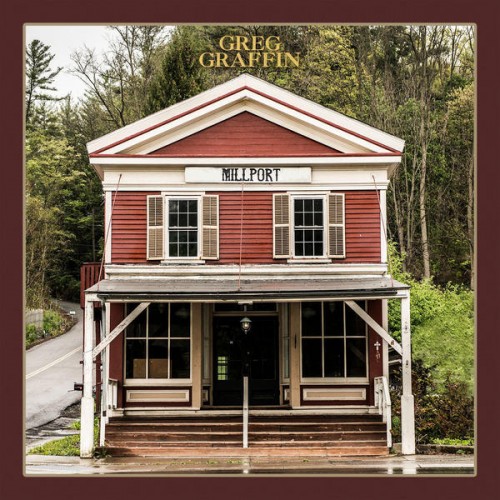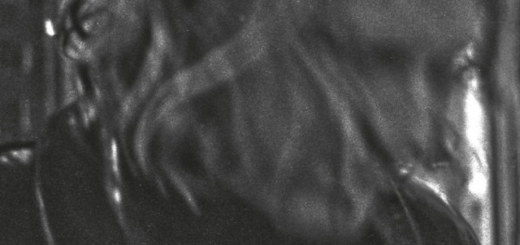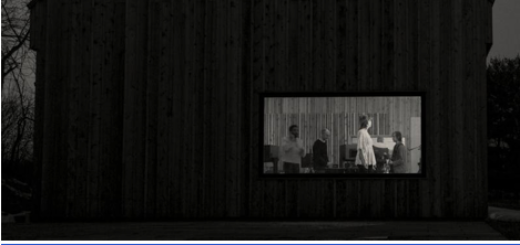MILLPORT by Greg Graffin

Genre: Americana, Folk Rock
Favorite Tracks: “Lincoln’s Funeral Train,” “Time of Need,” “Waxwings”
Punk rock is often thought of as having a very short lifespan. Very few hardcore punks can release more than a couple albums without having their edges dulled by the record industry and their authenticity called into question by their fans. Bad Religion are a very glaring outlier, given that they plan to release a 17th album sometime this year and have still retained the rebelliousness that made them such a huge underground phenomenon and one of the biggest influences on punk rock in the ‘90s. However, that hasn’t stopped frontman Greg Graffin from deciding to switch things up and release three folk records as a sort of catharsis from the righteous anger of his main band.
One of the reasons for Bad Religion’s surprising longevity is their frontman’s non-musical pursuits. Graffin has several college degrees in natural sciences, lectures at UCLA and Cornell, and writes books about naturalism and evolution. It’s clear that he’s a very intelligent man with a fascinating point of view that doesn’t just focus on hating conservatism, but his intellectual vigor and personality are not displayed enough here. MILLPORT is a competent but bland album with an overall lack of cohesion and any distinctive features, which would seem impossible given Graffin’s history, but is sadly all too possible.
Graffin has assembled members of Social Distortion and Bad Religion to serve as his backing band, and they do a serviceable job. The squeaky, jumpy fiddle is impressively performed and adds to the instrumental density, as do the plucky and playful banjos and the gospel background vocals. However, a lot of the guitar work is far too average and the production far too clean to distinguish MILLPORT from other pieces of Neil Young worship, especially since Graffin’s voice is rather thin and lacks hoarseness and grit. His best performances are when he calls on Marc Cohn on the album’s two piano ballads, “Time of Need” and “Waxwings,” and he succeeds in delivering a regretful and longing performance like a horrible sinner confessing in a church somewhere in the South.
In doing a side project like this, one expects Graffin to move from the intensely political to the deeply personal, but such a thing never comes to full fruition. There are tracks dealing with historical events, such as “Lincoln’s Funeral Train” and its grungy aesthetic, but then there are other tunes that sound like covers of non-existent classic folk rock jingles, like “Echo On The Hill,” and attempts at being personal full of too many pseudo-philosophical phrases like, “There’s just too many virtues in this lonesome, sorry heart / All loaded with pride” on “Making Time” and “Too Many Virtues.” The former are easily highlights of the album, but they are the minority in favor of weak sing-alongs and sickeningly saccharine phrases that should be below Graffin.
At just 31 minutes, MILLPORT breezes by way too quickly, and several songs on the album feel underdeveloped. There’s this odd, shrill sound effect over the verses on “Making Time,” a piece of sonic filler that adds nothing and could have been edited out easily. “Sawmill” has a gorgeous, urgency-filled fiddle, but it ends abruptly at the two-minute mark with no sense of completion. “Sawmill” is a good microcosm of the problems with MILLPORT’s second half, where satisfying endings are as hard to find as good guitar passages. Complaining about length is certainly an arbitrary point, but there’s a difference between a quick, instantaneous track that would overload the listener if it goes on too long and a congested, tightly-packed one that would benefit from more room to breathe.
Even though it’s easy to go into a record like this with a deeply pessimistic attitude, there is still a modicum of solid folk rock here that contrasts with the generic majority of MILLPORT. The fiddle is probably the only thing that saves Graffin from being completely forgettable, and there is no way that Graffin should be forgettable. It’s unrealistic to expect him to be as righteous and the guitars to be as raucous as they are on Bad Religion albums, but there’s nothing else here to replace that rage besides half-finished songs and a handful of decent ballads and historical allusions. Hopefully he has saved his creative energy and passion for Bad Religion’s new album coming later this year, because he didn’t bring all of it here.
Verdict: Do Not Recommend



